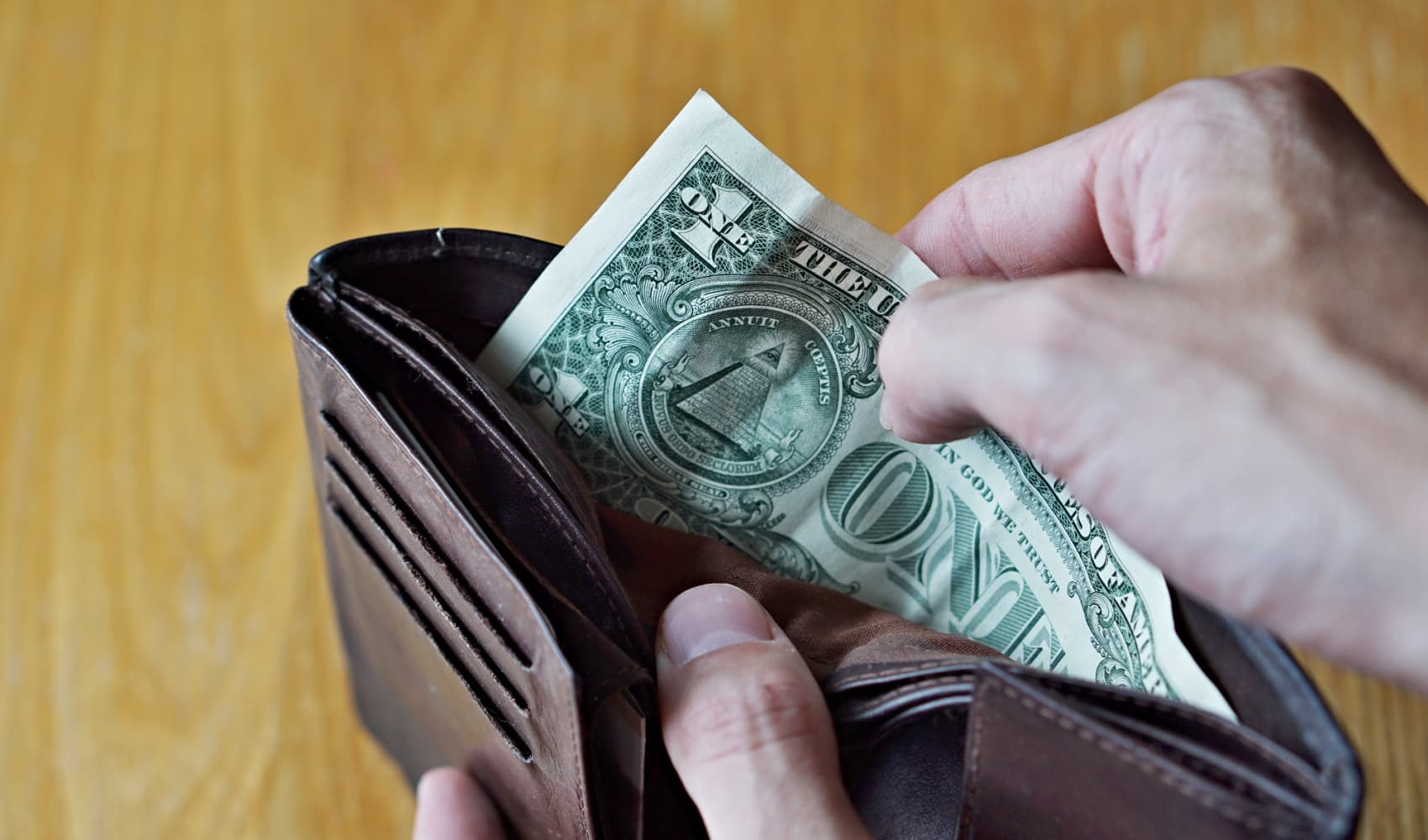
Roughly 22 million Americans have filed for unemployment in the last month while the coronavirus pandemic upended the U.S. economy. But those numbers only account for people who've been able to get past site crashes, never-ending wait times by phone and other logistical challenges in order to file an unemployment claim with their state office.
On top of the surge in activity, it's taken several weeks for the U.S. Department of Labor to issue guidance to states, which administer unemployment programs, and for states to start distributing boosted unemployment checks to a wider pool of workers as part of the $2.2 trillion stimulus bill.
Experts say there are several common mistakes people make when they file for unemployment for the first time that can delay a claim, especially now when resources are stretched thin. Here's how you can avoid those mistakes.
You don't apply for unemployment insurance.
If determining whether you're eligible for unemployment, and actually applying for it, seems complex, that's because it is. Every state determines who qualifies for unemployment aid and what the application process entails.
Recently, unemployment assistance has opened up to include nearly every person who's lost work, through no fault of their own, due to the coronavirus.
"The biggest question I've been getting is, 'My circumstance is X-Y-Z — should I apply?'" says Michele Evermore, senior policy analyst at the National Employment Law Project, a nonprofit research firm. "And the answer to that is almost always 'yes.'"
Money Report
Workers will qualify for aid if they were laid off, furloughed or had their hours cut. You can also check with your state's department of labor to determine additional eligibility, such as if you lost work because you were diagnosed with Covid-19, you're providing care to a family member with the virus, you have to care for a child due to school closures, you're unable to get to work due to closures or other qualifying reasons.
People who've seen a reduction in work hours and wages due to the virus may qualify for partial unemployment.
"In this particular period in history, getting an unemployment check isn't good just for you, but it's good for the local economy, and it's an important public health measure," Evermore says. "People need to take these benefits and not be making ends meet by going out to work."
You think only full-time employees are eligible for unemployment.
It might seem like unemployment coverage is available only to people who lost their jobs as full-time employees. And prior to the pandemic, part-time employees could receive benefits only in some states.
But now, under the newly created Pandemic Unemployment Assistance (PUA) program, people who previously didn't qualify for unemployment insurance, such as self-employed workers, independent contractors, gig workers and part-time employees, now qualify for federal aid.
These workers will likely be asked to provide as much earning history as possible from the previous year, whether that's through 1099 tax forms, invoice statements or proofs of deposit into a bank account.
Workers who can't provide this will qualify for a minimum benefit of half their state's average unemployment payout for up to 39 weeks, plus $600 per week until July 31.
It's possible you can claim some benefit even if you don't have any work history at all.
The stimulus bill says workers can qualify for aid if they recently received a job offer to start working, but that offer was rescinded due to the coronavirus (for example, the business closed or the position was eliminated).
Evermore suggests these workers keep an eye out for when they'll be able to apply for and receive federal aid under the PUA program in their state.
You don't understand why your claim is pending.
It typically takes a week for an unemployment claim to be verified by the state, says Edgar Ndjatou, executive director at Workplace Fairness, a nonprofit advocacy organization. During this time, agency reviewers must confirm with your previous employer the details of your work history, earnings and reason for leaving. They might also need to call you to verify details of your claim.
However, given the unprecedented level of unemployment claims, this traditional week-long process is likely to take much longer than usual.
"I can't see anybody not waiting a little while to get their benefits," Evermore says. She points out that unemployment offices are beefing up their capacity to handle activity by hiring more phone representatives, overhauling outdated websites and expanding service hours.
It's also possible your claim is still pending because you qualify for a program that hasn't rolled out in your state yet.
New York, for example, allowed self-employed workers to start filing claims in late March but marked submissions as "pending" until it rolled out the systems to handle PUA applications this week.
If your application is, in fact, stuck in limbo due to an error (because there's missing or incorrect information, for example), you should receive a notification of how to fix it. You'll be directed to make the correction either online or by phone. This can cause a delay of several weeks.
You assume a denied claim means you're completely ineligible.
As of this week, Evermore says Michigan, Texas, Louisiana, Rhode Island, Iowa, Pennsylvania and North Dakota are among the few states that have already opened their filing systems to account for applications to the new PUA program.
If you live in a state where PUA hasn't been implemented yet, your application could be denied until your unemployment office is ready to start accepting claims from self-employed, freelance and gig workers. When your state does start accepting these claims, you might have to file a new claim, or your previously denied claim could be reviewed under the new rules.
When Michigan opened its new PUA system last week, for example, the agency noted workers who are newly eligible to receive benefits, but had previously applied and were denied coverage, should log into their accounts and go through its updated PUA process.
Ndjatou adds that unemployment claims are often denied if they don't have enough detailed information about your reason for filing.
"Be very descriptive about the reason why you're unemployed or furloughed," he says. Provide as much information and supporting documentation as possible.
Another reason a claim might be denied is if your employer says you quit on your own.
Details here matter. Under the relief bill, some workers may be eligible for unemployment if they quit their jobs as a direct result of coronavirus.
"If you quit because of Covid-19, not just because you're afraid of the virus necessarily but if, for example, your child's school was closed or you had to care for a family member who got sick, you have to be clear about that," Ndjatou says.
If someone is denied unemployment insurance coverage, they can try to appeal the decision. The deadlines to appeal and processes vary by state, so check with your local unemployment office website for more details.
You forget your password.
With overloaded websites and phone lines, now's an especially crucial time to keep track of your username and password when you create an account with your state's unemployment office. If you lose any of these details, it could seriously delay your application process.
Evermore says in some states, the only way to reset a forgotten password is to call the agency's phone line, which won't be quick or easy these days. Don't count on getting an email to reset a password either; overloaded websites may not have the capacity to send these out in a timely manner, if at all.
"In some states, the agency will have to physically mail you your password," Evermore says.
Bottom line: "Make absolutely sure you keep track of your password."
You don't account for taxes.
Don't forget that unemployment earnings count as taxable income, including the extra $600 per week provided by the stimulus bill. Federal income tax is withheld at a rate of 10%, and you may owe state taxes depending on where you live.
You can elect to either have withholdings taken out from the start of your benefit period, or you may be required to make quarterly estimated payments. Either way, make a plan for paying taxes on your unemployment benefit.
Ultimately, "Unemployment insurance is an earned benefit," Evermore says. "People have an entitlement to it if they lose work through no fault of their own. People should see it that way and do everything they can to access their benefit."
Check out: The best credit cards of 2021 could earn you over $1,000 in 5 years
Don't miss:






